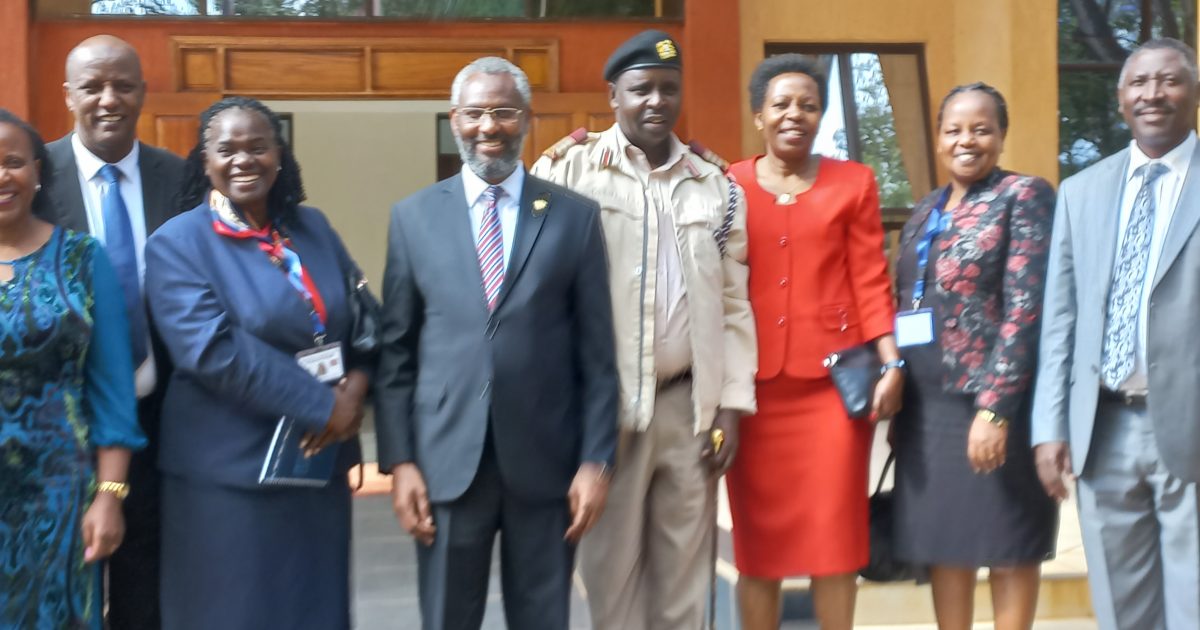The Working party on Education reforms appointed by President William Ruto in September was in Kiambu to evaluate the Competency Based Curriculum (CBC) and other teething problems in the education sector.
Team four that was tasked to collect views in Central region pitched tent in Kiambu County at least for two days where they had a forum with parents and teachers on matters education before coming up with their recommendations to the president.
The Working party lead by Prof. Stephen Kiama , Vice Chancellor University of Nairobi compiled views, challenges and experiences with the hope of drafting possible remedies to address issues raised by stakeholders since the introduction of reforms in the sector including the implementation of CBC..
“We started in Nyandarua, Kirinyaga, Embu, Nyeri, Muranga and now in Kiambu. We have visited institutions and talked to parents and communities including teachers and received their views”, he added.
He noted that when they listened to the people, they thought the exercise should have even been done long ago.
Prof Kiama insisted that the presidential comprehensive agenda for education was not only targeting the CBC concept but was an overall assessment on education reforms which covers early childhood education, Adult Education, Basic education that involves both Primary and Secondary schools, TVETs and also Universities.
“What this team is covering, is all issues whether to do with governance, legislations needed for proper learning, Financing and also issues to do with the structure of curriculum implementation”, he said.
Prof. Kiama acknowledged that there has been a lot of topics on education and that the Country is pregnant waiting to hear what the president will say about the grade 6 and where they will go.
“We are fully aware and we are prepared to advise the President in the shortest time possible. At the end of November and beginning of December we should be able to have in our minds based on the views received what needs to be done on grade six(6)”, he said .
Prof. Kiama stressed that it was misplaced for Kenyans to assume that the team was deliberately out to abolish the CBC curriculum saying to the contrary the system was a step in the right direction and only needed to be streamlined as children more involved in practical lessons.
However, he faulted the system and raised concern as to what extent a parent was supposed to contribute in their children’s assignments and projects making and come come clear on which of such activities must be done at home or in schools.
‘Most parents are challenged and do not know the contents of the curriculum including the money that they are required to pay”, he said
Kiambu County Commissioner Joshua Nkanatha who hosted the team before embarking on various institutions to get views from residents said the County was ready to give their recommendations..
“We want the transition from the grade 6 to Junior secondary school which most people are skeptical on to go on smoothly. We want all the people from parents, teachers and community to be involved”, he added.
The team will also visit Kiambu Institute of Science and Technology (KIST), Thogoto Teachers College, some Primary and Secondary schools including Alliance girls high school.
Members of the public are requested to give their views verbally or in writing to the Presidential working parties on education reforms based on the terms of reference as per the Kenya Gazette Notice .
President William Ruto, on September 30, 2022, appointed a 42-member taskforce to evaluate the country’s Education system and come up with recommendations, key among them an appropriate structure to implement the Competency Based Curriculum (CBC).
President Ruto said the Working Party on Education Reform will work for a six-month period and will be required to submit to him a progress report every two months from the date of their appointment.
By Wangari Ndirangu




